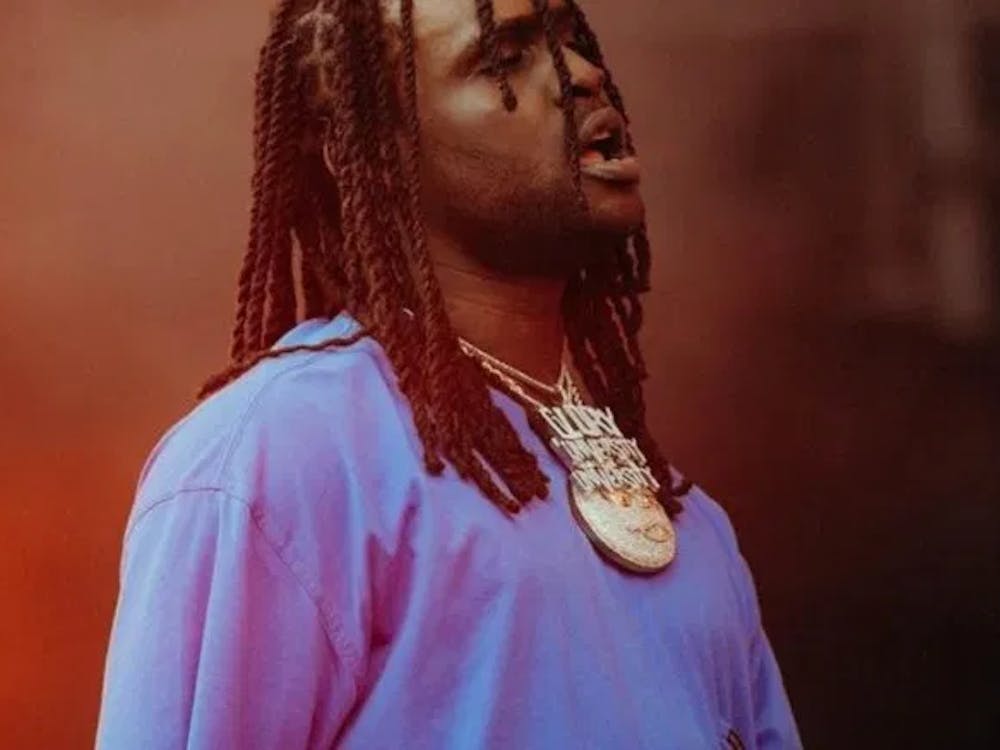As the wily mammal slunk around in shielded caves during the great Dinosaurian Genocide, so too did drill music bide its time, watching with psychotic satisfaction as the apex predator of its day was burnt alive. Also like our quadrupedal ancestors, it’s triumphant reemergence from the shadows and subsequent dominance was all but inevitable. Drill is reborn, dancing on SoundCloud’s grave.
Due to drill’s barely defined scope, calling it a genre or even a subgenre is dangerous. It is, rather, an energy and an attitude. A song can judiciously be considered drill if it causes the average person to want to subvert authority by committing any number of crimes up to including and especially murder. When you strip away any melody or poppy hook the song has, a drill song’s core is just cold, self-reliant anarchy.
Chief Keef’s revolution occurred pretty much entirely in Chicago. When considering the violent crime rates in the areas near Keef’s home, it makes sense that such a nihilistic and dangerous sound would originate here. But, this is a new era, and two giants have emerged as drill crucibles: Brooklyn and Brixton.
The most exciting thing about Brooklyn drill is how completely different it is from the Chicago variety, and how fleshed out it already is. The lyrical content is more mature. This drill is not meant for kids; there is no “Hate Being Sober” for suburban high-schoolers to mosh to at house parties. This is music that is lived in, often sounding like the background music for a movie about a castaway cursing God and learning that the only way the world makes sense is to force it to.
Drillers such as Pop Smoke and Sheff G recently dropped phenomenal projects and have proven their star potential multiple times over. Pop Smoke, who was murdered Feb. 19, was truly exciting, with his desperate, ice-cold delivery and impeccable ability to choose magisterial beats that make his dead eyed lyrics roll like doctrine. His death is one of the most tragic and impactful losses in rap history, due to his age and potential. Sheff G makes more accessible, yet perhaps less influential music, but his kinship with Jamaican born Sleepy Hallow continues to produce profoundly sad and tough street sagas.
22Gz remains an indomitable trendsetter within this movement. His beats and delivery are already being mimicked by aspiring rappers from all over the country. However, one cannot help but question his longevity, as nearly every other artist has some differentiating factor. I still can’t pin down Fivio Foreign, who recently secured a Drake co-sign (which is basically a guaranteed career maker at this point). His music is bizarre. He has the voice of Rich the Kid, but he delivers bars like he just ran 100 miles in 10 minutes. It is stressful and life-giving music, but it does take a few listens to understand exactly what he is trying to do.
The beats for this regional subgenre are fascinating. They have an ethereal quality that stands in stark contrast to the undead terror of the lyrics. They are heavy and light at the same time, both timeless and furiously paced. Rather than exuding energy, as Young Chop’s beats did for Keef, they store it in the listener, which can lead to a thoroughly stressful experience.
Across the pond, UK drill has finally come into its own. It has been a long time coming, since Drake first explored the style in 2017. The push against a British invasion of rap only encouraged UK rappers to develop a unique style unmarred by commercial compromise.
Amidst great political and social turmoil in the isles, young artists turned their sophisticated insights into bleak, deeply personal and remarkably intellectual music. Dave, unassumingly named and understated in every way, released one of the most vital international rap albums of all time, to virtually no acknowledgement in the US. Honesty in self-exploration mixed with phenomenal one liners (“My currency's Kenyan, that's in it for the long run”) mark him as an artist with the potential to easily legitimize his genre to American listeners.
Other British superstars in the making, such as slowthai, Stormzy and Skepta, have reached our charts, but the lion’s share of their most interesting music has gone unnoticed. As most American rappers have lost their voices in the past year, UK drillers are focused, hungry and ready to restructure all of rap in their image.
This drill is less violent and anarchic than the Brooklyn variety, but it is by no means any less angry. British rappers are furious at their government, especially Boris Johnson, over Brexit, pervasive anti-immigration sentiment and the backward direction of their economic policy. Their music often plays like a mature rebellion. Of course, flexes of sexual escapades, jewelry and personal wealth remain prominent, but they take a backseat to legitimate grievances.
Both styles of drill are entirely more adult, more focused, and more depressing than the last iteration. If the next rap boom grows out of these styles, rap fans can expect a much more heady, lyrically minded rap genre in the years to come. This is a more complicated world than the one that Chicago drill revolutionized. The planet is dying, threats of wars and disease outbreaks are increasing daily and income disparity has never been more prominent.
It is encouraging to see rap, which has always been strongest as an expression of discontentment with the status quo, return to its roots. But, for the first time, Americans are behind the curve. Watch the Old North Church; the Redcoats are coming.
Get The Chronicle straight to your inbox
Sign up for our weekly newsletter. Cancel at any time.

